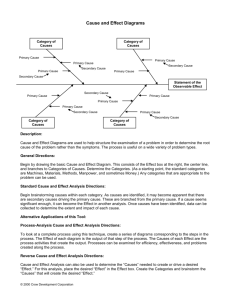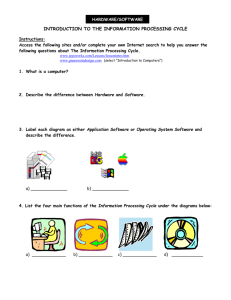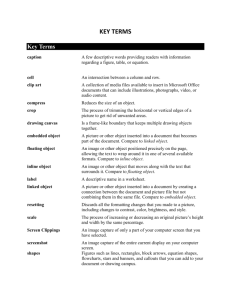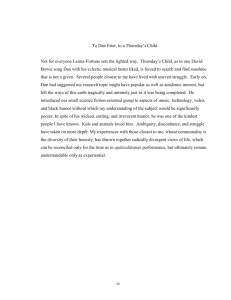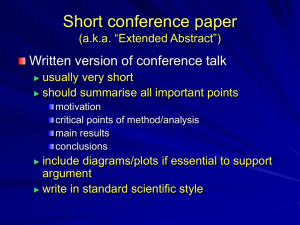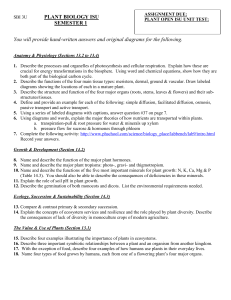LLD2
advertisement
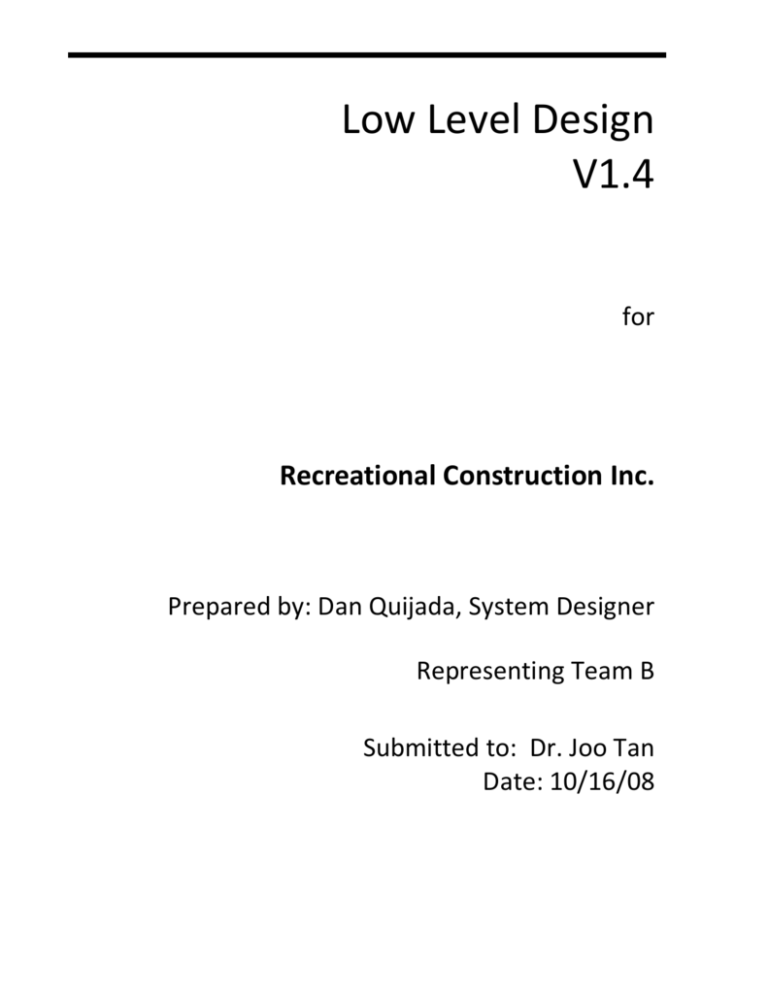
Low Level Design V1.4 for Recreational Construction Inc. Prepared by: Dan Quijada, System Designer Representing Team B Submitted to: Dr. Joo Tan Date: 10/16/08 Low Level Design Index Section 1.0 2.0 3.0 Content Document Purpose Sequence Diagrams Package Diagram Page Number 1 2-8 9 i Revision Chart The following contains descriptions of the different versions, dates completed and version numbers of the Low Level Design document. Version Primary Author(s) Description of Version Date Completed 1.0 Dan Quijada Initial Draft for review Oct. 8, 2008 1.1 Dan Quijada Oct. 15, 2008 1.2 Dan Quijada 1.3 Dan Quijada 1.4 Dan Quijada Revised sequence and package diagrams Revisions to descriptions of sections Revised sequence diagrams Fixed pagination Revised view customer information sequence diagram Deleted lookup customer sequence diagram Added arrows to package diagram Minor revision for final report Oct. 16, 2008 Oct. 21, 2008 Nov. 24, 2008 ii 1.0 Document Purpose The Low Level Design document models user interactions with the system we are creating for Recreational Construction Incorporated (RCI) and how these interactions are handled. This document contains sequence diagrams, which show the interaction between objects, and a package diagram, which shows how classes are related to one another. Microsoft Visio 2007 was used to create all diagrams in this document. 1 2.0 Sequence Diagrams Sequence diagrams provide details of object interactions, including messages passed. They model the various use cases for the system. For example, in Figure 2.1, the administrator or employee will enter a login in name and password into the login screen, which is displayed on the user interface. From there, the name and password are passed to the user handler, which will then access the database containing all user names and passwords. If the login is successful, control is passed back to the administrator or employee, and they are able to access the rest of the system. The sequence diagrams are displayed in the following figures. Figure 2.1: Login sequence diagram Figure 2.2: Logout sequence diagram 2 Figure 2.3: Add user sequence diagram Figure 2.4: Edit user account sequence diagram 3 Figure 2.5: Add job sequence diagram Figure 2.6: Cancel job sequence diagram 4 Figure 2.7: Add customer sequence diagram Figure 2.8: Edit job sequence diagram 5 Figure 2.9: Complete job sequence diagram Figure 2.10: View customer information sequence diagram 6 Figure 2.11: Change cover status sequence diagram Figure 2.12: Add employee sequence diagram 7 Figure 2.13: View tool checklist sequence diagram 8 3.0 Package Diagram Figure 3.1, the package diagram, shows the relationship between the classes in the RCI system. Figure 3.1: Package Diagram for RCI system 9 Author(s): Dan Quijada Document: Low Level Design – V1.4 MILESTONE EVALUATION SHEET 10
